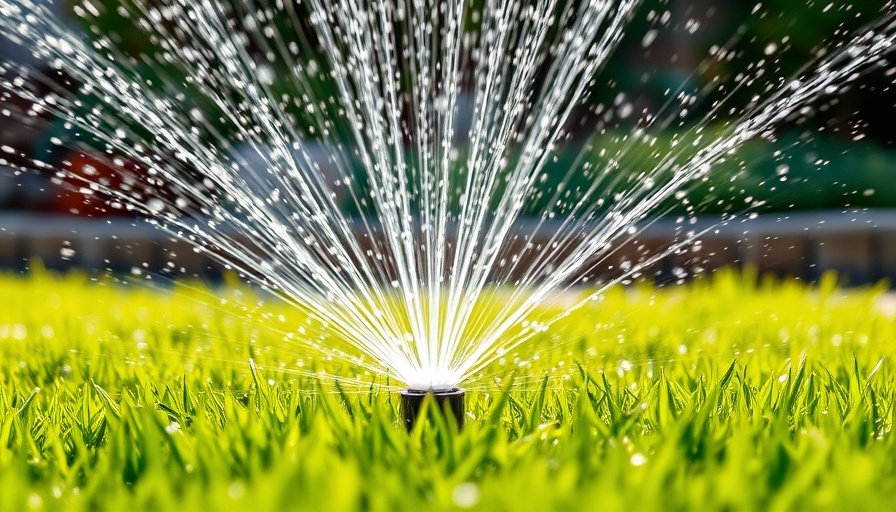
Understanding New Grass Restrictions in Las Vegas
As water conservation becomes a pressing issue in Las Vegas, residents are grappling with new restrictions on grass landscaping that take effect in 2027. The Southern Nevada Water Authority (SNWA) has clarified the stipulations following Assembly Bill 356 and its subsequent amendment, Assembly Bill 220, shedding light on how these laws affect various types of residential properties.
What the New Law Means for Homeowners
Starting January 1, 2027, the irrigation of nonfunctional turf will be prohibited in areas not exclusively zoned for single-family residences. This amendment means that grass areas located in common spaces of homeowners associations (HOAs) and other shared land will be affected, as these spaces do not fall under the category of properties used solely for single-family dwelling. For homeowners, understanding whether their grass strips are classified as common areas or not is crucial, as it directly impacts their ability to maintain these landscapes.
Grounds for Concern: Common Areas and Easements
The Las Vegas Valley Water District’s comments highlight that many grass strips adjacent to curbs and sidewalks are often classified as common areas, managed by HOAs. Homeowners sharing these spaces have no exclusive rights, making irrigation of nonfunctional grass illegal under the new rules. Additionally, even if these grass strips are not classified as common areas, homeowners may find that their property titles contain easements that allow public access, further complicating their ability to use water for irrigation purposes.
Community Responses and Implications for Homeowners
As Las Vegas residents express their concerns over these changes, it’s essential to foster community discussions around alternative landscaping methods. Converting nonfunctional grass areas to desert landscaping can conserve water, reduce maintenance needs, and align with the city's climate. Many homeowners are finding success with xeriscaping—a landscaping method that reduces or eliminates the need for irrigation—and this could be an excellent opportunity for homeowners to rethink their outdoor spaces.
Future Impacts on the Real Estate Landscape
The implications of these restrictions extend beyond just aesthetics; they also affect property values and the overall housing market in Las Vegas. Homes with lush, green yards have often been a selling point, but as water conservation laws take precedence, potential buyers may begin to favor properties that are already compliant with the new standards. This shift could strategically impact the types of homes being developed and ultimately influence market trends.
Final Thoughts on the Grass Restrictions
With these new restrictions on grass irrigation looming, homeowners in Las Vegas must stay informed and proactive. Understanding the implications of laws like Assembly Bill 356 and the need to adapt landscaping practices will not only ensure compliance but also enhance the community's overall sustainability. As we move closer to the enforcement date, discussions around water conservation and innovative landscaping methods will play a crucial role in shaping the future of Las Vegas.
 Add Row
Add Row  Add
Add 
Write A Comment